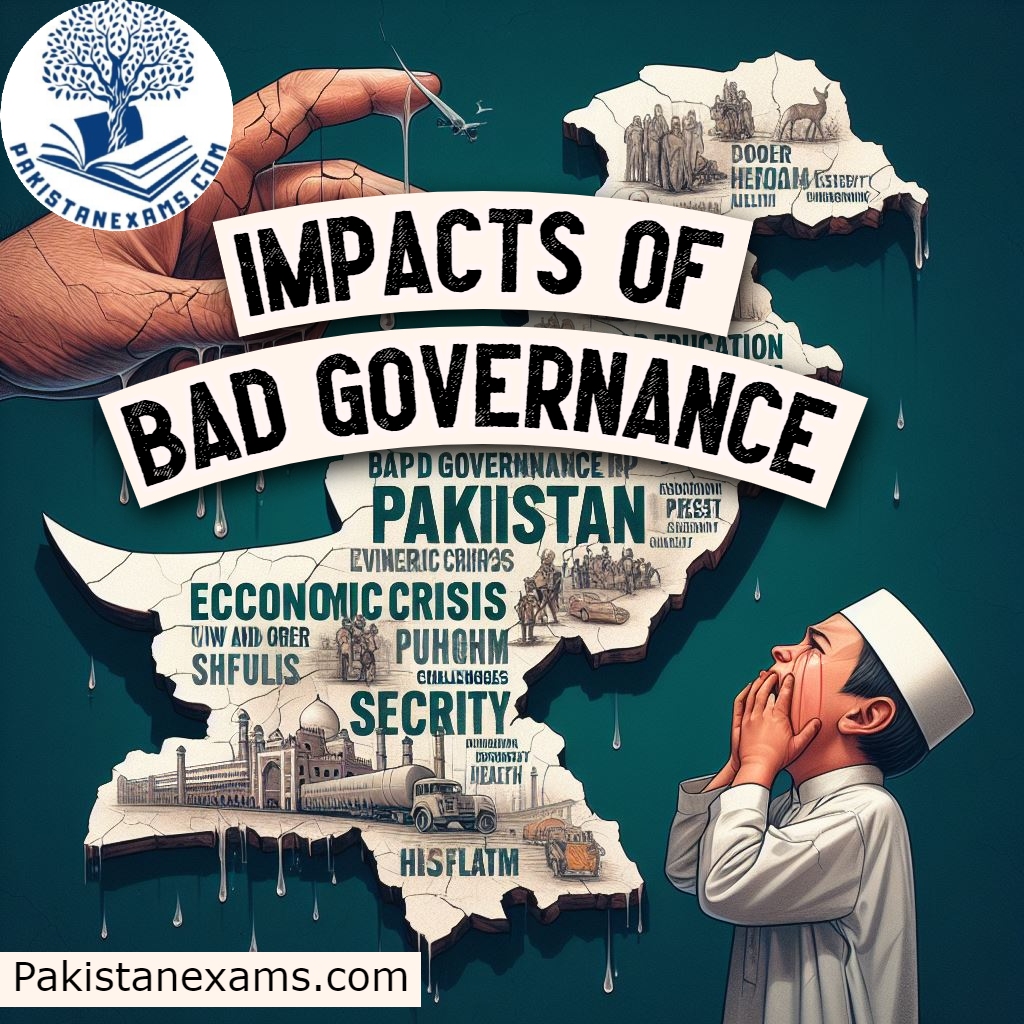Introduction
Bad governance in Pakistan has led to a series of negative consequences in various areas of the country. These areas are economy, law and order, education and healthcare systems, security, and infrastructure. The impacts of bad governance are further described below.
Economic Crisis
A contributing factor to Pakistan’s economic crisis has been bad governance. Fiscal deficits have gotten worse, economic growth has been hampered, and foreign investment has been deterred by corruption, favoritism, and poor management. Additionally, the nation’s high unemployment rates, inflation, and currency devaluation are the results of the inconsistent policies and lack of transparency that have undermined investor confidence. Due to the posed economic instability, Pakistan’s social and economic disparity has grown wider, separating the rich from the poor. Resultantly, bad governance has hindered economic growth and contributed to the nation’s economic problems.
Law and Order Issues
It is clear how bad governance affects law and order. Pakistan now has an atmosphere of injustice due to the weakening rule of law, increasing corruption, and inefficient law enforcement agencies. As a result of bad governance, the public’s declining faith in the judicial system, social dissatisfaction, and widespread disappointment have taken place in Pakistan. Thus, terrorism, organized crime, and sectarian violence are the effects of law and order problems in the country.
Click here to read about the causes of bad governance in Pakistan.
Poor Education and Health
The effects of poor governance are significant and wide-ranging in the fields of healthcare and education. Insufficient funding, interference by politicians, and ineffective administrative practices have resulted in a lack of resources, failing infrastructure, and unsatisfactory services in hospitals and schools. Consequently, many Pakistanis lack access to high-quality healthcare and education. Hence, bad governance in the education and healthcare sectors affects the overall human development and societal advancement in Pakistan.
Security Challenges
Pakistan faces a complex array of security challenges, worsened by ineffective governance. The country’s porous borders, and inadequate counterterrorism approaches, have enabled extremist organizations to grow. This poses serious risks to both national security and regional stability. Additionally, internal political crisis, ethnic tensions, and separatist movements exacerbate security concerns in the country.
Infrastructure Decay
Bad governance has significantly impacted Pakistan’s infrastructure, resulting in deterioration and poor conditions across different sectors. Lack of investment, insufficient maintenance, and widespread corruption have led to decaying roads, inadequate public transportation, and poor public facilities. These issues not only hinder economic productivity and mobility but also pose risks to public safety.
Conclusion
In short, the impacts of bad governance in Pakistan are significant and wide-ranging, affecting all sectors of society and delaying the country’s advancement. To tackle these issues, comprehensive reforms are essential. Additionally, these reforms should focus on improving transparency, accountability, and institutional capabilities in Pakistan.


1 thought on “The Impacts of Bad Governance in Pakistan”